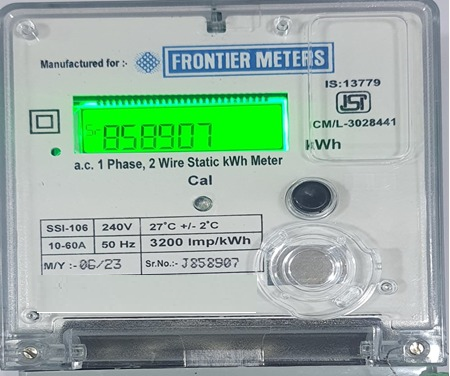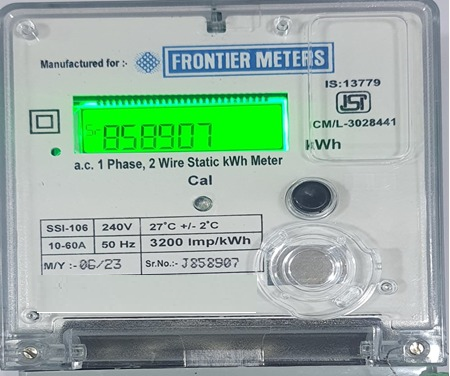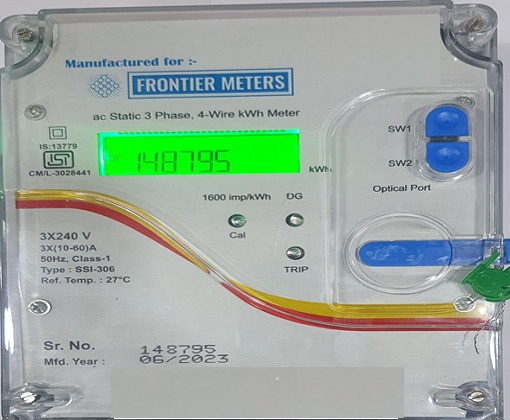Single Phase Meters

- A single-phase power meter, as the name suggests, is a two-wire AC or altering current power circuit. It changes the supply voltage of the power simultaneously. Generally, it is called “residential voltage” since its usage is mostly found in homes. This type of meter uses phase and neutral wires for power distribution, where the phase wires carry the load and the neutral wire acts as the returning path for the power. In a single-phase meter connection, the voltage starts at 230 Volts and possesses a frequency of about 50 Hertz.
- It can be installed where there is no power back or fully power back as its has only inputs one for mains and other for neutral. And they are mostly intended to install in residential homes and domestic supplies. The reason is that most appliances like lights, fans, television, refrigerator, etc. need a minimum amount of energy to work.
- There can be separate tariff can be set up for main consumption and back up consumption
Two Phase Meters
- A Two-phase meter, as the name suggests, has two phases input and output i.e one of main power supply and other is of back up power of either from Inverter or from DG. Where ever there will be partial back, Two Phase meters used to capture the consumption of mains supply as well as power back up supply.
- They are mostly intended to install in residential homes and domestic supplies where there is partial back from the inverter’s and DG and mostly.

Three Phase Meters

- A three-phase electric meter is a device used to measure electricity consumption in a three-phase electrical system. It has three voltage inputs, each measuring the voltage of one phase, and three current sensing elements to measure the currents in each phase. The meter calculates the total energy consumption by processing voltage and current measurements and displaying the cumulative energy usage in kilowatt-hours (kWh). Three-phase meters are commonly used in industrial and commercial settings where higher power demands and more balanced loads are required. They comply with accuracy standards to ensure fair billing and efficient energy management.
- This metering system helps in running large machinery well. For commercial and industrial loads, three-phase meters are preferred due to the heavy power requirement. It does not require excessive conducting material to conduct electricity. Hence, these meters are more of a cost-effective and economical solution.
